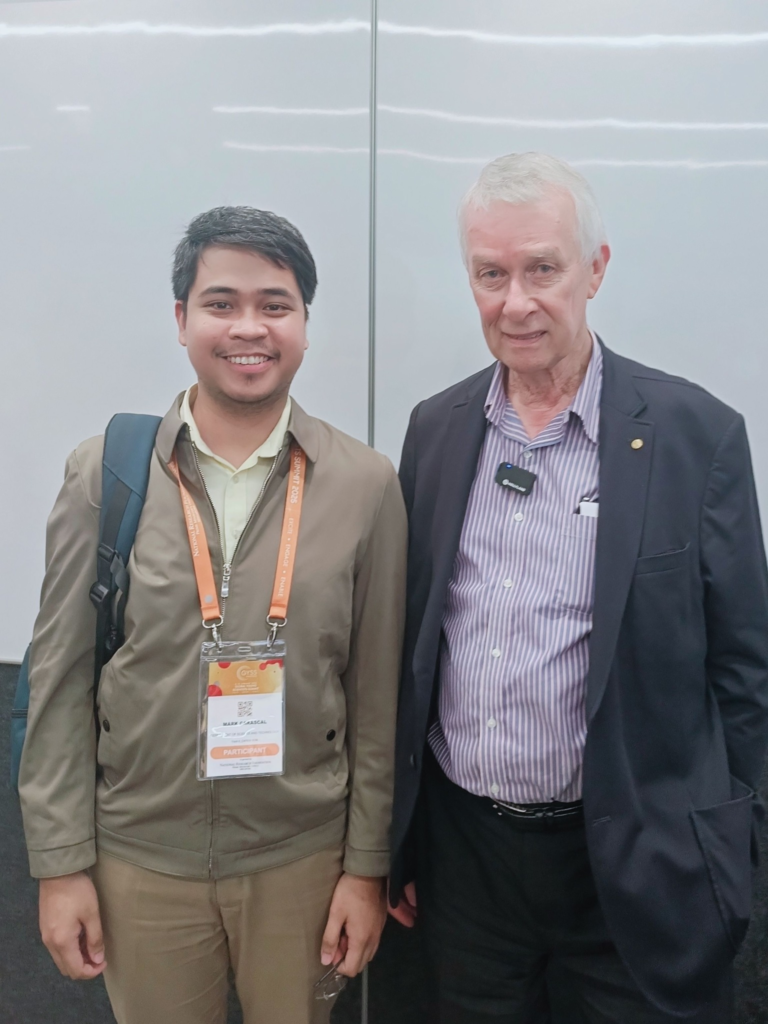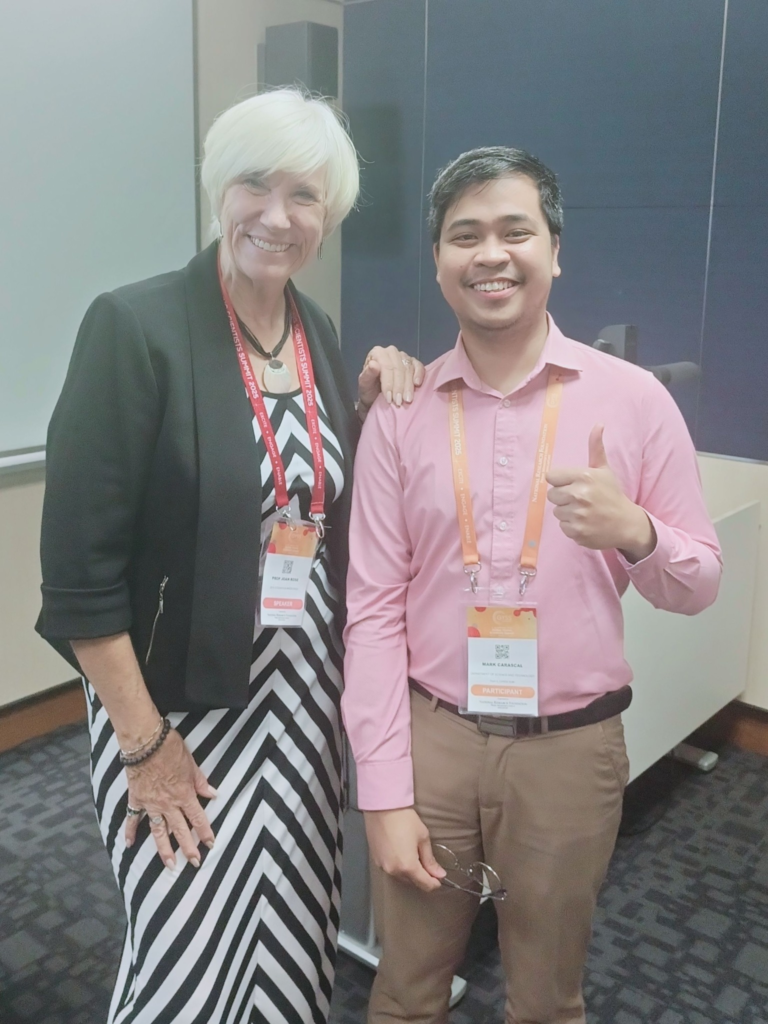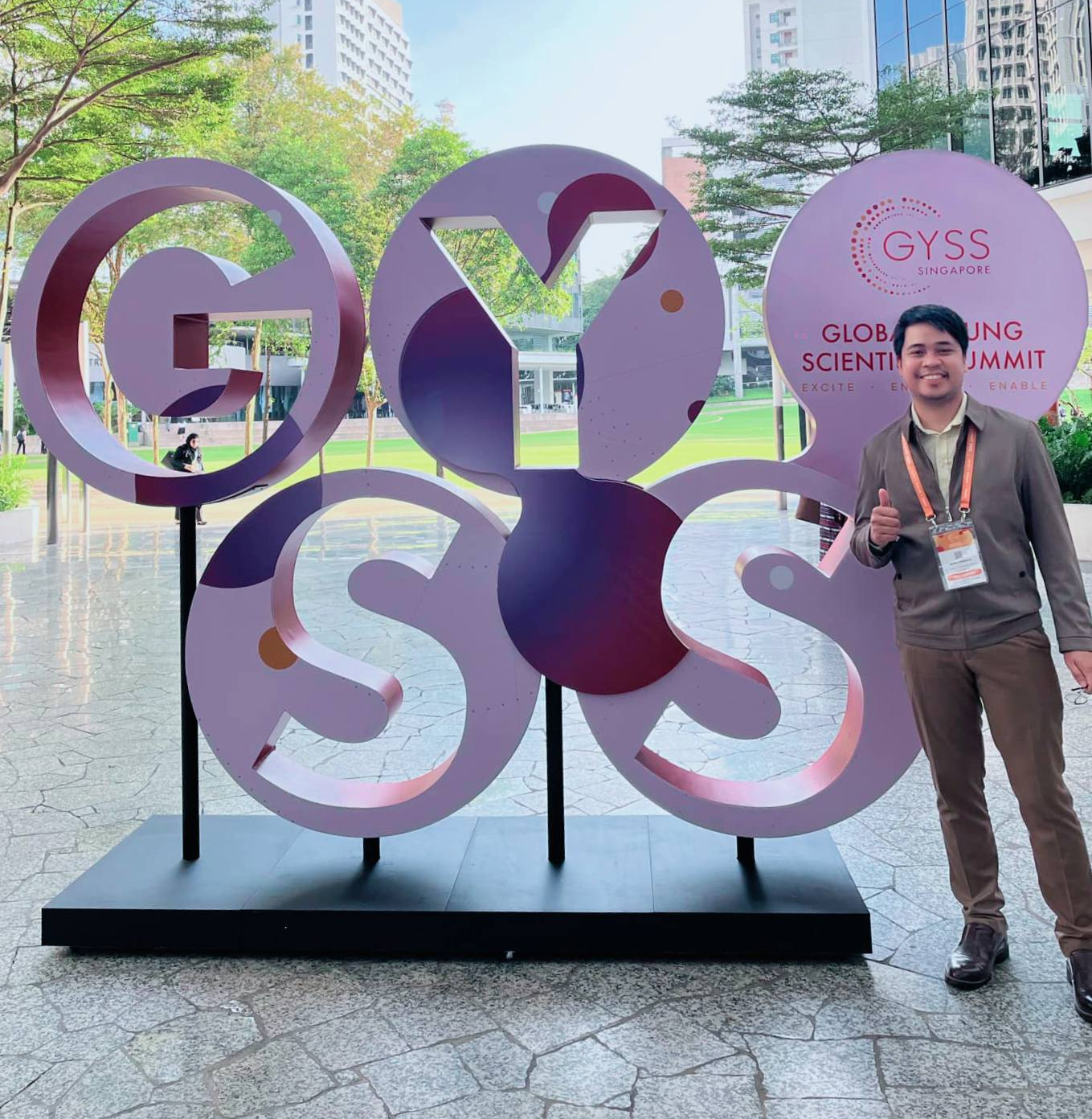Almost four years ago, I had the great privilege to be part of the “pandemic batch” of the Global Young Scientists Summit (GYSS, 2021). I enjoyed it as nothing beats the experience of actually meeting your scientific heroes (albeit online).
This year, as the opportunity opened at the right timing, I was given the rare chance to participate again in GYSS, this time in an in-person arrangement (thanks to the nomination of the Department of Science and Technology). Aside from the free participation, accommodation, wonderful food, and culture, being able to personally talk to outstanding scientists who worked in the fields that I am most interested in (i.e., two Nobel Prize laureates in Physiology or Medicine, one Nobel Prize laureate in Chemistry, and one Stockholm Water Prize laureate) has been a chance of a lifetime, more so taking a photo with them. Additionally, connecting with new friends from various fields (biomedicine, material science, chemistry, quantum physics, mathematics, economics, etc.) broadened my perspective on the interdisciplinary nature of research and how science is indeed a “social” activity.
To summarize, this year’s installment of GYSS provided me with a different perspective of what I wanted to achieve as a scientist. To be honest, one of my biggest goals in life [before] is to win a Nobel Prize in the future (as [I believe] most ambitious young Filipino scientists do too). But with the sessions for the entire week, it made me realize that maybe that goal is too superficial and too self-centered. As shared by most of the award-winning scientists who gave the plenary talks, almost all of their recognized scientific discoveries were driven by pure curiosity and interest in the natural world (and most of the time, luck), not by the potential to receive/ produce awards, recognitions, fame, or money [or even publication]. Their strong commitment to basic science (even if the applications of it is not yet known or realized) provided validation on my passion for the work that I do (even though not everyone appreciates or value them). Thinking about my scientific goals more maturely, I think I’ll add “doing something out of curiosity/ excitement instead of fear/ pressure to do good” to my checklist and put “winning a Nobel Prize” as just a potential output of my [future] work rather than a goal.


One of the coolest professors I met. He is so relatable, funny most of the time, and full of life and science wisdom. Some of the lessons I learned from him in our fireside chat include:
– Science doesn’t have to be complicated.
– Sometimes, it’s prudent to think outside the box. When we encounter certain observations that we think as possibly significant (especially those outside what we know/ currently accepted), it could be worthwhile to sometimes chase them and explain the phenomenon rather than stick to the current knowledge.
– Always pay attention to what you observe.
– Teaching could be a great avenue to improve your science communication.
– Choosing the best mentor is more important than choosing a specific field of study.

An outstanding model of being a “physician-scientist”. He considers doing science as a hobby. Some of the lessons I learned from him in our fireside chat include:
– Early detection of diseases is still an important unmet medical need in the world.
– Do good [basic] science and let others recognize [and apply] your work.
– Train with good people (i.e., mentors) in a good place (i.e., university/ industry).

A very respectable professor. He has a lot of involvement in non-scientific movements such as gender equality in science, science communication, open access to science, and GMOs, among others. Some of the lessons I learned from him in our fireside chat include:
– Don’t stick to one topic in your research- explore other fields.
– Go to a road less traveled. While most people focus on the “hot topics”, venture to underexplored [or unexplored] fields.
– To communicate your science, we can do a “grandmother’s test”—if your grandmother understands what you explained to them (i.e., your science work), then you have communicated the concept successfully.
– In transitioning from academia to industry, find the right industry partner. Let them do the business work so you focus on your science.

As a fellow microbiologist, talking to her felt like home. She is very cool and articulate, and provided many great ideas in some of the projects I am brewing. Some of the lessons I learned from her in our fireside chat include:
– Equity in research (especially in low to middle income countries) could be achieved by addressing problems in the supply chain and technology access.
– Ethics in microbiology research (especially synthetic microbiology) is a very important consideration.

